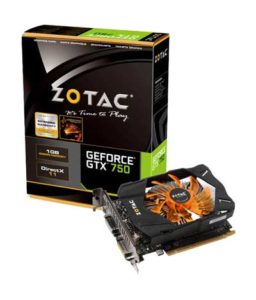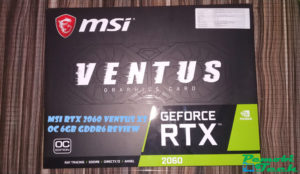When it comes to PC gaming, you’re faced with a decision between a gaming desktop and a laptop. However, it can be challenging to determine which option is best suited for your needs. Before making a purchase, it’s important to understand the main factors that set these two choices apart.
Gaming Laptop vs. Desktop: A Comparison of Performance, Price and Portability
When comparing gaming laptops and desktops, several key factors come into play, including performance, price, flexibility & upgradability, and portability:

A Comparison of Performance
Performance is incredibly important when it comes to gaming. You want a system that can handle even the most demanding games and applications without any lag or slowdowns. When deciding between a gaming laptop and a desktop, it’s crucial to consider the differences in performance.
Gaming laptops are designed to be portable and energy-efficient, so they typically use mobile versions of CPUs (central processing units) and GPUs (graphics processing units). While these components are still powerful, they may not match the processing power and graphics capabilities of their desktop counterparts. As a result, gaming laptops may not be able to run certain games at the highest settings or achieve the same frame rates as the best desktop systems.
However, modern gaming laptops have made significant advancements in recent years and can still provide a great gaming experience. The compromises in terms of performance in games are generally minimal, and many mid-range gaming laptops today are just as fast as the typical desktops used by PC gamers, rather than the high-end rigs that only a few people have.
Desktop gaming PCs have a key advantage in terms of performance per dollar. The desktop equivalent of a gaming laptop with similar performance will usually cost significantly less. So, while you’ll get the same gaming experience with both systems, you’ll pay a premium for the laptop’s portability and mobility.
Nevertheless, the price difference between gaming laptops and desktops has been narrowing steadily. You might discover that the space-saving, portability, and power consumption benefits of a gaming laptop make the slightly higher price compared to an equivalent desktop more appealing than you initially thought.
Analyzing Price and Value
Let’s talk about the price and value of gaming laptops and PCs in a more understandable way. Price is a straightforward concept, but value is subjective and varies from person to person. What one person finds valuable may not be important to someone else. For example, a PC gamer who primarily plays games at their desk and doesn’t care about the size of their PC, power consumption, or the unique advantages of gaming laptops may not find those features valuable.
To illustrate this, let’s consider the 2022 ASUS ROG Strix G15, which comes with an AMD Ryzen 7 6800H processor and an RTX 3060 laptop GPU. This computer is roughly comparable in performance to current-generation consoles, especially when you consider its additional ray tracing capabilities and access to DLSS technology. While it’s not an exact comparison, it puts us in the same league of gaming experience.
A current-generation console typically costs around $500. So, the price difference to get a similar gaming experience with the ASUS ROG Strix G15, along with the various perks of PC gaming, would be approximately $700. On the other hand, a decent non-gaming laptop would also fall within the price range of $500 to $700, and you wouldn’t need to buy a separate monitor or TV if you don’t want to. This example demonstrates how the value of a gaming laptop can be significant depending on your needs and perspective.
Now, let’s consider desktop gaming PCs. It’s undeniable that they offer a price-to-performance advantage. But what about their overall value? While a laptop provides mobility and flexibility, desktop PCs offer different types of freedom. With a desktop PC, you have the freedom to build your system according to your budget, upgrade it gradually over time, purchase used components, choose a design and style that suits your preferences, and customize it for different tasks and game genres. The possibilities are vast.
In summary, the price and value of gaming laptops and PCs are subjective. It depends on your individual needs, preferences, and how you assess the benefits and features they offer.
Exploring Flexibility and Upgradability
When it comes to flexibility and upgradability, desktop PCs have a clear advantage. They provide the flexibility to build a computer that perfectly suits your needs and preferences.
However, gaming laptops offer a different kind of flexibility. They allow you to enjoy PC gaming wherever you go while still being able to use them for other non-gaming tasks. You can play games not only at your desk but also anywhere in your home. Additionally, you can easily connect your gaming laptop to a gaming monitor or hook it up to a TV for a larger display.
In terms of upgradability, desktops are in a league of their own. Laptops generally have limited options for upgrades, typically limited to RAM and storage. Even external graphics processing units (GPUs) are not usually recommended for gaming laptops because the internal dedicated GPUs tend to offer better performance for the cost.
However, desktop PCs can sometimes create a dilemma when it comes to upgrades. Upgrading one component, such as the GPU, may cause an imbalance in the system, leading to a need for a new CPU, which in turn may require a new motherboard and potentially new RAM as well.
It’s important to note that the notion of a short upgrade cycle in PC gaming is not necessarily necessary or common. The idea that you need to upgrade your entire PC every few years may not be more cost-effective than purchasing a decent gaming laptop and replacing it every 3-5 years.
Overall, while desktop PCs excel in terms of upgradability, gaming laptops offer the flexibility of portable gaming without sacrificing other laptop functionalities. The decision between the two ultimately depends on individual preferences, needs, and budget considerations.
Evaluating Portability and Mobility
Portability and Mobility is an important aspect to consider when choosing between desktop computers and laptops. While laptops are typically seen as the more portable option, desktop computers can also offer portability in the form of Small Form Factor (SFF) PCs. These compact desktops are designed to be easily transported and set up in different locations, such as hotel rooms or a relative’s house.
SFF computers can be equipped with high-performance components and advanced cooling systems like water cooling or vapor chamber coolers. They offer better value for your money compared to gaming laptops, as you can get more powerful hardware for the same price.
However, when it comes to sheer mobility, gaming laptops have the upper hand. There are incredibly thin and lightweight gaming laptops available that can rival the performance of mid-range desktop PCs. Imagine a desktop computer with a core i5 or i7 processor and a graphics card between a desktop RTX 3060 Ti and a 3070. These gaming laptops weigh less than five pounds and can easily fit into a regular messenger bag.
Gaming Desktop vs. Laptop: Which One Should You Invest In?
Deciding between a gaming desktop or a laptop is no longer a simple choice. With advancements in technology, changes in market factors impacting desktop component prices, and shifts in how gamers engage with the hobby, the conventional wisdom regarding gaming laptops no longer holds true.
If you don’t require the specific advantages that gaming laptops offer in terms of mobility, versatility, power consumption, and space-saving, then buying one might not be the best option for you. If you primarily play PC games at a fixed location like your desk or a permanent spot, investing in a gaming laptop wouldn’t make much sense.
In such cases, it’s generally safer to stick with desktop PC gaming. This is especially true if you’re on a tight budget or if you prioritize having the absolute best gaming performance that money can buy. PCs cater to both ends of the spectrum exceptionally well.
However, things become less clear in the mid-range price segment of $1000 to $2000. Gaming laptops in this price range offer performance comparable to powerful mid-range gaming PCs while providing the benefits of a work laptop or even a professional workstation for content creators and other power users. If you find yourself in this sweet spot, it’s worth seriously considering a gaming laptop as it can serve as a versatile all-in-one device for your needs.
When you purchase through links on our site, we may earn an affiliate commission. Read our Affiliate Policy.





